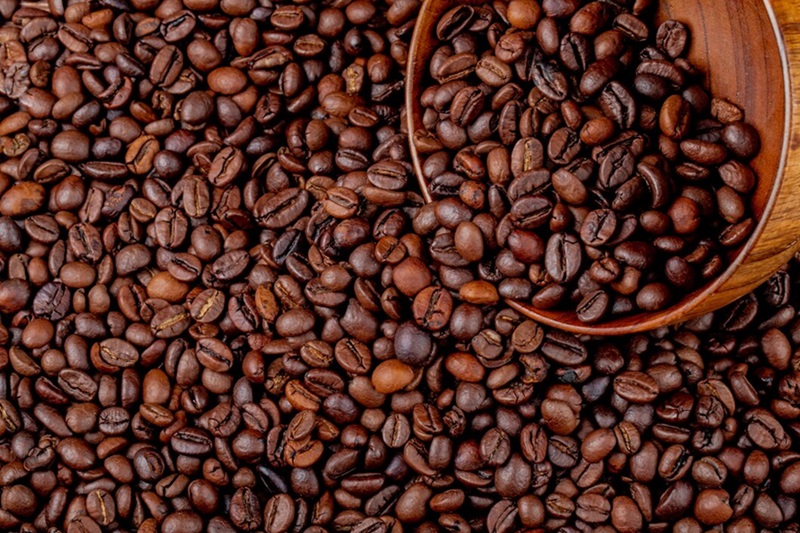The Complete Connoisseur’s Guide to Selecting Superior Organic Coffee Beans

Introduction
Welcome to the world of organic coffee beans! This isn’t just about grinding beans and brewing your morning cup. It’s about indulging in thriving taste palettes, appreciating nature’s best gifts, and supporting sustainable practices. Choosing quality beans is not only important for your mug but also for a superior coffee experience.
A cup of Java is more than a mere morning routine. It’s a sensorial adventure that bursts with intricate notes and aroma. This experience is significantly influenced by your coffee bean’s quality, type, and brewing method. As more people embark on this journey, responsibly-grown organic coffee is becoming a popular choice.
But what makes a coffee bean organic? How does bean variety influence your coffee’s taste? How important is freshness and Fairtrade when selecting coffee beans? Whether you’re a coffee devotee or a casual sipper, understanding these aspects will enhance your experience manifold.
Through this guide, we hope to help you sail through your next coffee buying expedition – assisting you in exploring the myriad of organic beans and making a mindful, delicious choice.
Understanding Organic Coffee
To truly appreciate organic coffee, we must dive into what makes a bean ‘organic’. Organic coffee is grown without synthetic fertilizers or pesticides, promoting a sustainable, safe environment for both the coffee growers and consumers.
Organic coffee farming focuses on long-term environmental stewardship, working in harmony with nature. It depends on natural processes and biodiversity to create a healthy, balanced ecosystem. Organic farmers utilize proactive methods like crop rotation, cover cropping, and composting to naturally enhance soil fertility and manage pests.
Responsible farming practices maintain the quality of soil and reduce pollutants in the ecosystem. Organic coffee growing also helps to conserve water resources, reduce carbon footprint, and save the incredible biodiversity of coffee-growing regions.
Not every coffee bean can qualify as ‘organic’. Obtaining organic certification requires rigorous verification of these sustainable practices by accredited organizations. Rest assured, when you buy organic coffee, you’re investing in a product respectful of our planet and its inhabitants.
Know Your Beans
Let’s dive deeper into the types of organic coffee beans available. The most popular types are Arabica and Robusta, with Arabica largely prized for its delicate flavor and low acidity.
Arabica, containing less caffeine and more fats and sugars compared to Robusta, often lends a sweeter, nuanced taste. On the other hand, the Robusta variety, with its high caffeine content and strong flavor, is favored for its eye-opening kick and intense espresso shots.
Other less common but equally exciting organic coffee varieties include Liberica, with its rare floral and fruity notes, and Excelsa, appreciated for its unusual layered flavors. So when it comes to choosing organic coffee beans, consider your flavor preferences and explore the varieties that cater to your personal taste buds.
Moreover, the regional geography of where the beans are grown significantly influences their flavor profile, just like in wine. For example, Latin American coffees are typically well-balanced and fruity, while African coffees tend to have wine-like or floral characteristics. Asiatic coffees are often full-bodied and earthy.
The Significance of Freshness
When it comes to coffee, freshness is everything. The quality and taste of your brewed coffee significantly depend on the freshness of the beans. Freshly roasted beans are known for producing the best cup of coffee. They retain the essential oils and flavors that give coffee its distinct character.
Coffee beans begin to lose their freshness soon after roasting due to exposure to oxygen, light, and moisture – a process known as oxidation. This changes the coffee’s chemical composition and deteriorates its taste.

So how can you tell if your beans are fresh? Check for the roast date on the package. Any bag of coffee that doesn’t state an authentic roast date is a red flag. Ideally, you should consume the beans within a month of their roast date.
Cracking a bean open can also give you an insight into its freshness. A fresh bean will be hard and have a noticeable aroma. A dull, lifeless aroma indicates an old bean.
Fairtrade and Organic: The Dynamic Duo
Fairtrade aims to improve the living and working conditions of farmers and their communities by encouraging ethical trade. When you buy Fairtrade certified organic coffee, you’re not just making a purchase but casting a vote for a fair and sustainable future.
Fairtrade ensures that farmers are paid a fair amount for their products, encouraging them to maintain organic practices. It’s a commitment to better farming practices, environmental protection, and community development.
Ethically sourced coffee drives this change, encouraging consumers to make purchasing decisions that empower coffee growing communities. It’s not merely about good coffee, but good ethics too.
Buying Fairtrade organic coffee is a simple way for you to support these communities and make a significant impact on their lives. It’s a winning situation for everyone – you indulge in a better cup of joe, farmers live better lives, and the planet benefits from sustainable practices.
Identifying Quality Beans
Every bag of coffee is not created equal, and that includes organic options. If you wish to identify high-quality organic coffee beans, pay attention to the labels. Check for certifications like USDA Organic, Fair Trade, Rainforest Alliance, etc. These certifications indicate the product’s authenticity and the makers’ commitment to quality and sustainable practices.
In absence of a roast date on the bag or a lackluster aroma upon opening, you might need to reconsider your choice. High-quality beans will have a saturated smell that teases your senses.
The bean’s appearance can also be telling. Premium quality beans should have a uniform color and size. Any signs of mold, moisture, or bug damage are indicators of poor quality.
The Best Ways to Store Your Beans
Storing your coffee beans properly is just as important as choosing the right beans. The flavor profiles of coffee beans are extremely susceptible to their environment. Exposure to light, heat, air, and moisture can adversely affect your beans, leading to stale and flavorless coffee.
To keep your beans in their peak form, invest in a dark, airtight, and dry storage container. Keep this container in a cool place, away from the stove or windows, to avoid temperature fluctuations. Remember, your beans don’t like see-through containers or fridges, as they invite moisture and odors.
Common storage blunders include keeping the beans in their original packaging or glass jars and storing them in the refrigerator. These mistakes can rob your beans of their vibrant flavors before you get to brew and sip.
Top Recommendation of Organic Coffee Beans
If you’re ready to brew better coffee, here are a few top organic brands that are worth trying:
– “Equal Exchange” offers a variety of certified organic and Fairtrade coffees sourced from small-scale farmers worldwide.
– “Stumptown’s” organic blends are meticulously sourced and rich in flavor.
– “Kicking Horse” is a Canadian brand that excels in Fairtrade organic coffees with a wide range of light to dark roasts.
Each brand’s unique selling point extends beyond taste, leveraging ethical sourcing, and exceptional quality. Let your flavor preferences guide your choice and be sure to check out our in-depth reviews for each brand!
Concluding Thoughts
Selecting the best organic coffee beans extends beyond basic shopping tips, diving into understanding organic farming practices, exploring diverse bean varieties, and underlining Fairtrade’s importance. This guide delivers more than coffee facts, enabling you to make mindful choices when buying your beans.
Remember, as a consumer, your choices impact more than your taste buds. They resonate with our environment and the coffee growing communities. Drinking organic coffee isn’t just about satisfying your caffeine cravings but contributing to a bigger cause.